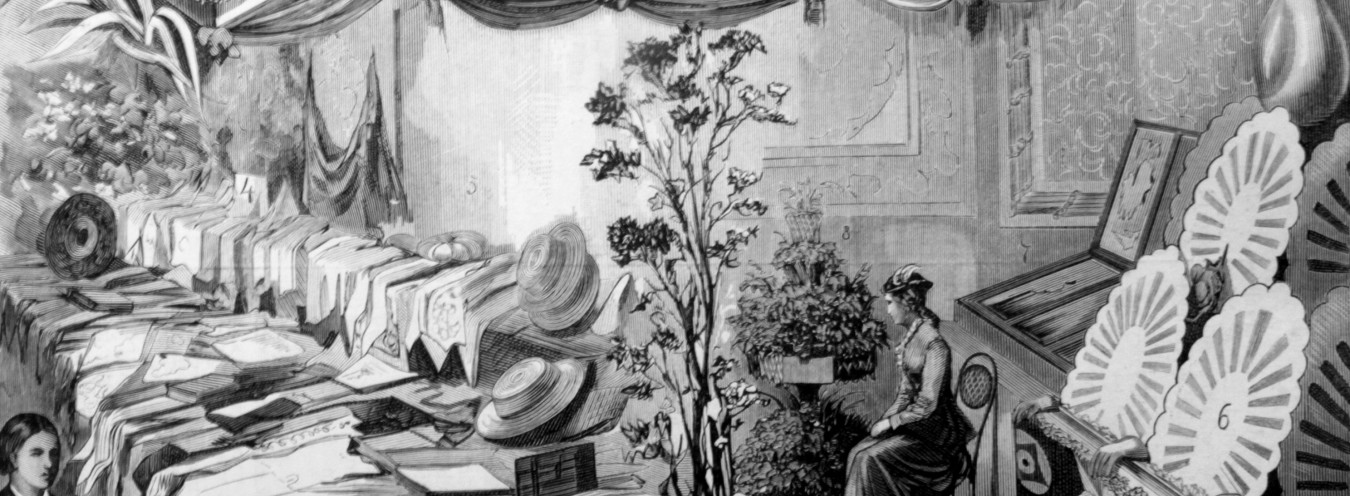
Warsaw Merchants
Early in 1878, when the political world was concerned with the treaty of San Stefano, the election of a new Pope, and the chances of a European war, Warsaw businessmen and the intelligentsia who frequented a certain spot in the Krakowskie Przedmieście were no less keenly interested in the future of the haberdashery firm of J. Mincel and S. Wokulski. (1)
The Doll is popularly considered to be a novel about the bourgeoisie and merchants. The very first page introduces some middle-class characters from mercantile and intelligentsia circles. What they have in common is following the principle of, as Mr Deklewski puts it, sticking to a trade, i.e. focusing on an assured living in [one’s] grasp which gives a sense of security and control. This is why Wokulski gets criticised as a man of restless nature when he leaves his country to do business in a war zone, and his chances of success are considered small. In his novel, Prus also cites the opinion that Poles have little knowledge of and even less skill for international trade, which is why only Jews and Germans get rich.
Commercial dealings, not always aboveboard and honest in nature, are also the daily bread of some ruined aristocracy and gentry representatives (severely censured by the author). And so, the reader learns from Tomasz Łęcki that the Baron, one of his daughter’s suitors, is in some company with usurers, and the fortune of the other one, the marshal, came mainly from lucky fires… and trading in beef during the Crimean war. This detail indicates that, at the time of the social transformation, the boundary between the aristocracy and the middle class (including tradespeople) was becoming blurred.
The “fraternisation” was, however, out of question. The Doll clearly shows that mutual business dealings were just appearances, hiding the aristocrats’ hypocritical contempt for trade and commerce. The nobility displays an unmistakable aversion to social-climbing businessmen with a simultaneous greed for their money. One of the reasons for this antipathy on the part of the aristocracy and the gentry was the sense of being threatened and forced to fight for the privileged social position, previously taken for granted.
The vice denounced by Prus with particular vehemence is destructive envy. Warsaw merchants lose in competition to Wokulski, so they level accusations at him: that he trades with Russia, supplies armies in Bulgaria, floods the domestic market with foreign goods, ruins the Polish industry; some even accuse him of treason and the lack of patriotism. It must be remembered, however, that trade concessions issued by the governments of European powers were common in the second half of the nineteenth century. Contractors from all over the world tried to become part of the financial ventures approved by Russian authorities (e.g., supplying the army with food and munitions). Those who managed to obtain the concession, like the novel’s Wokulski and Suzin, reaped huge profits if the army was victorious.
Prus had an equivocal attitude towards tradespeople. Undoubtedly, he acted as a defender of this important social group, but he did not spare criticism for their narrow-mindedness and lack of foresight. The author considered money to be a necessary though insufficient means to achieve the needed social and spiritual objectives, which were so much more than mere financial gain. The Doll does not idealise mercantile values and lifestyle. On the contrary, one of the novel’s characters, Julian Ochocki, states bitterly: If sense was a matter of thinking about income, people would still be apes.
→ Aristocracy; → Merchant; → Bourgeoisie; → Money; → Society;
Bibliografia
- J. Bachórz, O pieniądzach i kwestiach ekonomicznych w Lalce Bolesława Prusa, in Pieniądz w literaturze i teatrze, ed. J. Bachórz, Gdańsk 2000.
- W. Tyburski, Polskie tradycje etyki życia gospodarczego, in Etyka biznesu, ed. J. Dietel and W. Gasparski, Warsaw 2000.



